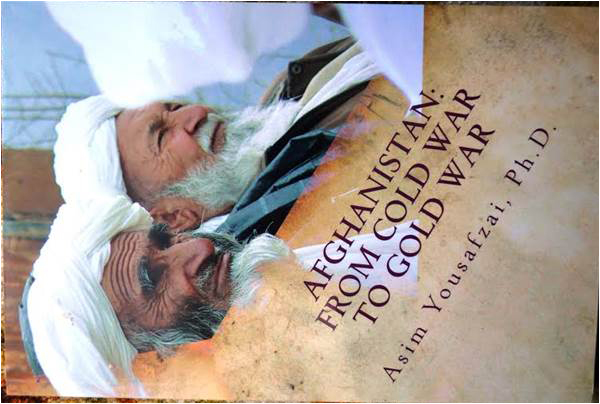
How do you see the security situation in Afghanistan?
The security situation in Afghanistan is as bad as it has been at any point since the international forces took over in 2002. There is an uneasy calm in areas with weak militant presence and acts of violence are committed on a daily basis in the capital Kabul and in southern parts of the country where Taliban are strong. Taliban have retained the capacity to strike at will despite the presence of international forces for the past 12 years. The recent complex attack in a very secure area of Kabul is indicative of Taliban’s resilience. The Taliban insurgency is more of a franchise rather than a large organization with a central command. The international forces are following a policy of population-centric counter insurgency (COIN) in which they are concentrating on large population centers leaving behind the majority of rural population at the mercy of militants. Consequently, this policy has largely been unsuccessful in creating any lasting security except in the security bubbles around NATO bases. 2014 is the make or break year for Afghanistan and national, regional and international players need to find a lasting solution.
What is the future of Taliban in Afghanistan?
There are examples from around the globe where extremists have been pacified. Afghanistan is not one of them. Taliban are here to stay for a long time to come. Though Taliban don’t necessarily follow the trans-national Jihadi ideology of Al Qaeda, nonetheless they want Sharia-based laws for their country. Taliban draw their financial and philosophical strength from Wahabi ideology. As long as Saudi-Iran rivalry plagues the south Asian region, Taliban will be funded and supported. There is no dearth of recruits for Taliban. There is a very high unemployment rate in Afghanistan and Taliban empower ordinary citizens with an AK-47 and enough money to support their families. The innumerable madrassas on the Pakistani side of the Durand Line are churning Taliban recruits at an unimaginable rate. The perpetual turmoil since 1973 has produced at least two generations of illiterate Afghans who can be easily persuaded to join the so-called Jihad against the western infidels. The international community needs to leave the Afghans alone and help broker a regional solution so that proxy wars are not fought on the Afghan soil. As long as Afghanistan stays unstable and does not invest heavily in modern education, Taliban will remain relevant in the foreseeable future.

Has the new government in Islamabad changed its approach to insurgency in Afghanistan?
Pakistan’s Afghan policy is largely controlled from Rawalpindi and not from Islamabad. So far we have seen a continuation of the old policy adopted in the early 1980s. The Pakistani establishment somehow believes that a friendly government in Kabul is their best chance to quell Pashtun nationalism. The systematic Talibanization of Pakistan has bogged down the establishment at home and is not allowing it to meddle in the internal affairs of Afghanistan and India and other regional countries. As a result, pursuing the goal of a soft government in Kabul is not a top priority as it has been in the past. However, the policy of picking and choosing terrorist groups is strongly pursued. Haqqanis are the current favorites and they remain state guests in Islamabad. The current policy is to wait and see who Karzai’s successor is. Islamabad is holding its card close to the chest but would certainly like to remain relevant in any future Afghan set-up. Unlike his previous two terms, Nawaz Sharif appears frail and has lost touch with reality. A weak civilian government will pave the way for GHQ to call the shots and dictate their will on Kabul.
Who will lead Afghanistan after Karzai? How do you see the upcoming Afghan presidential election?
Although the Afghan elections are only two months away, there are real concerns about the viability of the electoral process. The security situation could worsen in a matter of days as the future of Bilateral Security Agreement (BSA) is uncertain. Karzai has toughened his stance on signing the BSA and NATO now believes that he won’t sign it. If NATO decides to go for zero-option, it will play well for the terrorists. In the complete absence of international forces, Taliban can have a field day with those participating in the election process. We have seen extremely low turnouts in the past and another low turnout could mean less credible results. The credibility of Afghan government has eroded over time and the political process is in danger of being taken over by chaos and violence. It appears that the top candidates are Ashraf Ghani backed largely by Pashtuns and Abdullah Abdullah supported by Tajiks and other northern communities. Ashraf Ghani’s decision to pick Rashid Dostum as his number two is not playing well with Pashtuns.
Can natural resources play an important role in the future of Afghanistan?
Afghanistan is sitting on mineral resources worth 3 trillion US dollars. These include huge deposits of Rare Earth Elements (REEs) which are in great demand for high tech industries. China is the sole provider of REEs and would like to maintain its monopoly. It is already in the lead for bidding on some of the mineral resources, followed by India. If properly explored, exploited and managed, these could possibly transform Afghanistan into a wealthy nation.
The security situation in Afghanistan is as bad as it has been at any point since the international forces took over in 2002. There is an uneasy calm in areas with weak militant presence and acts of violence are committed on a daily basis in the capital Kabul and in southern parts of the country where Taliban are strong. Taliban have retained the capacity to strike at will despite the presence of international forces for the past 12 years. The recent complex attack in a very secure area of Kabul is indicative of Taliban’s resilience. The Taliban insurgency is more of a franchise rather than a large organization with a central command. The international forces are following a policy of population-centric counter insurgency (COIN) in which they are concentrating on large population centers leaving behind the majority of rural population at the mercy of militants. Consequently, this policy has largely been unsuccessful in creating any lasting security except in the security bubbles around NATO bases. 2014 is the make or break year for Afghanistan and national, regional and international players need to find a lasting solution.
What is the future of Taliban in Afghanistan?
There are examples from around the globe where extremists have been pacified. Afghanistan is not one of them. Taliban are here to stay for a long time to come. Though Taliban don’t necessarily follow the trans-national Jihadi ideology of Al Qaeda, nonetheless they want Sharia-based laws for their country. Taliban draw their financial and philosophical strength from Wahabi ideology. As long as Saudi-Iran rivalry plagues the south Asian region, Taliban will be funded and supported. There is no dearth of recruits for Taliban. There is a very high unemployment rate in Afghanistan and Taliban empower ordinary citizens with an AK-47 and enough money to support their families. The innumerable madrassas on the Pakistani side of the Durand Line are churning Taliban recruits at an unimaginable rate. The perpetual turmoil since 1973 has produced at least two generations of illiterate Afghans who can be easily persuaded to join the so-called Jihad against the western infidels. The international community needs to leave the Afghans alone and help broker a regional solution so that proxy wars are not fought on the Afghan soil. As long as Afghanistan stays unstable and does not invest heavily in modern education, Taliban will remain relevant in the foreseeable future.

Has the new government in Islamabad changed its approach to insurgency in Afghanistan?
Pakistan’s Afghan policy is largely controlled from Rawalpindi and not from Islamabad. So far we have seen a continuation of the old policy adopted in the early 1980s. The Pakistani establishment somehow believes that a friendly government in Kabul is their best chance to quell Pashtun nationalism. The systematic Talibanization of Pakistan has bogged down the establishment at home and is not allowing it to meddle in the internal affairs of Afghanistan and India and other regional countries. As a result, pursuing the goal of a soft government in Kabul is not a top priority as it has been in the past. However, the policy of picking and choosing terrorist groups is strongly pursued. Haqqanis are the current favorites and they remain state guests in Islamabad. The current policy is to wait and see who Karzai’s successor is. Islamabad is holding its card close to the chest but would certainly like to remain relevant in any future Afghan set-up. Unlike his previous two terms, Nawaz Sharif appears frail and has lost touch with reality. A weak civilian government will pave the way for GHQ to call the shots and dictate their will on Kabul.
Who will lead Afghanistan after Karzai? How do you see the upcoming Afghan presidential election?
Although the Afghan elections are only two months away, there are real concerns about the viability of the electoral process. The security situation could worsen in a matter of days as the future of Bilateral Security Agreement (BSA) is uncertain. Karzai has toughened his stance on signing the BSA and NATO now believes that he won’t sign it. If NATO decides to go for zero-option, it will play well for the terrorists. In the complete absence of international forces, Taliban can have a field day with those participating in the election process. We have seen extremely low turnouts in the past and another low turnout could mean less credible results. The credibility of Afghan government has eroded over time and the political process is in danger of being taken over by chaos and violence. It appears that the top candidates are Ashraf Ghani backed largely by Pashtuns and Abdullah Abdullah supported by Tajiks and other northern communities. Ashraf Ghani’s decision to pick Rashid Dostum as his number two is not playing well with Pashtuns.
Can natural resources play an important role in the future of Afghanistan?
Afghanistan is sitting on mineral resources worth 3 trillion US dollars. These include huge deposits of Rare Earth Elements (REEs) which are in great demand for high tech industries. China is the sole provider of REEs and would like to maintain its monopoly. It is already in the lead for bidding on some of the mineral resources, followed by India. If properly explored, exploited and managed, these could possibly transform Afghanistan into a wealthy nation.

